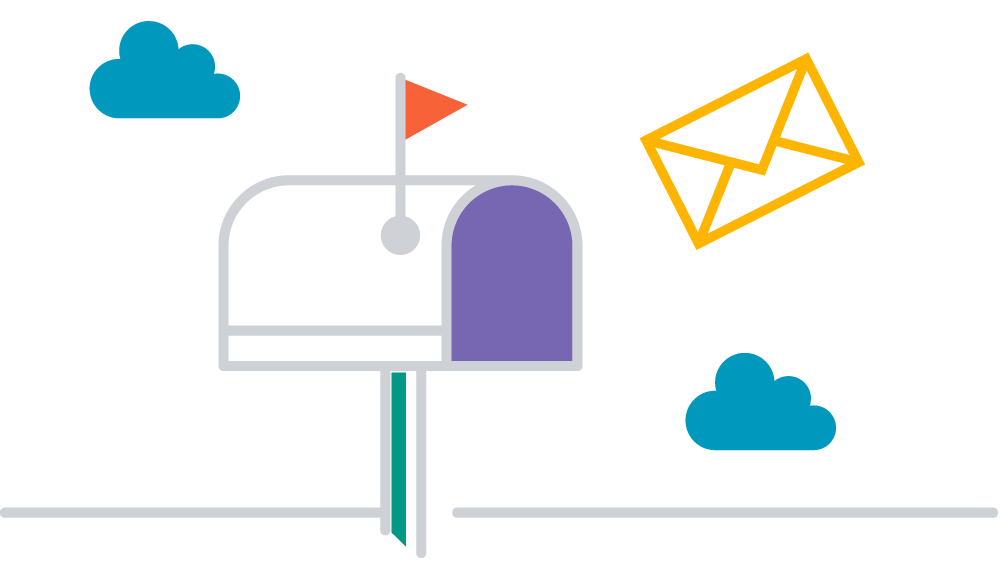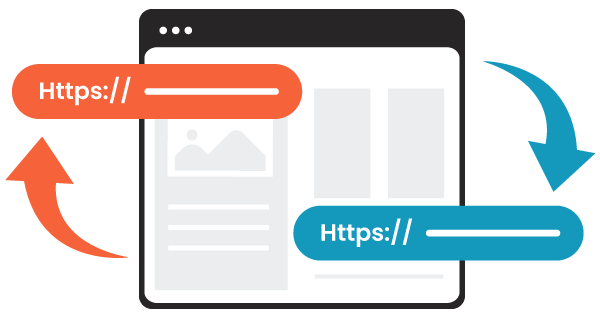CaseWorthy’s Commitment to Supporting Disabilities Within Its Workforce
What is a disability? According to the CDC[1], a disability is “any condition of the body or mind (impairment) that makes it more difficult for the person with the condition to do certain activities (activity limitation) and interact with the world around them (participation restrictions).” That makes it sound like a straightforward issue to manage, but the reality is that disabilities cover a wide range of both physical and emotional impairments to how these individuals interact with a variety of things in their personal lives. Protecting those with disabilities was signed into law by President George H.W. Bush in 1990 with the Americans with Disabilities Act (ADA), yet people with disabilities currently still have the lowest employment and highest poverty rates of any minority group[2].
In today’s business landscape, inclusivity has become more than just a buzzword; it’s a core value that forward-thinking companies are embedding into their ethos. According to a recent study[3], more than 80% of organizations have implemented a Diversity, Equity, and Inclusion (DEI) program. At CaseWorthy, we are proud to be at the forefront of this movement by fostering an inclusive environment, specifically geared toward supporting individuals with disabilities. We believe that diverse perspectives drive innovation and growth, and that inclusion must start within our own workforce.
Shayne’s Story

For those I’ve not met, my name is Shayne Champion and I’m the Chief Information Security Officer (CISO) at CaseWorthy. As a preface to my story, I do not share this often. I do not, nor have I ever, wanted either for cancer to define who I am or to make people feel sorry for me. Please don’t – I’m a very blessed guy! However, I think it’s important for you to understand the context of why inclusion is important to me personally.
My story starts in elementary school where I spent a year being the guide for two students with disabilities; Aaron had Multiple Sclerosis (MS) and Trey was deaf. We became fast friends, and I witnessed some of the struggles they had in daily life (leading to an unfortunate number of fistfights defending them amongst our peers). This sudden introduction to the disability community would change my perspective forever.
In 1996, I was diagnosed with squamous cell carcinoma of the tongue following a deployment in the Army. Since I’m not (and never have been) either a smoker, drinker, or dipper, it perplexed my doctors – but it turns out that there’s a lot of carcinogenic stuff in the M1 Abrams tank. After experiencing a radical neck dissection and the removal of the right 1/3 of my tongue, I underwent a series of daily radiation treatments to my jaw and neck over a period of 6 weeks.
Recovery was tough, but I learned how to talk again and operate in a relatively traditional way. I was (and remain) very thankful for the medical team that assisted me, and my faith remained strong throughout the experience. While there were a few complications from radiation over time, 26 years passed and I was very blessed to be able to get married, raise a family, and work to develop my career in information security in relatively good health.
At the end of 2022, I was experiencing a growing sense of pain in my jaw around the same region of my mouth. I visited more than 6 doctors over the next few months, but my local physicians weren’t able to diagnose or fix the issue so I was referred to specialists at the University of Alabama at Birmingham (UAB). They determined that I had cancer in my jaw and conducted surgery that February to replace the diseased bone along with another 6-week round of radiation.
My original prognosis included being non-verbal for 4-6 months as my jaw healed, however the second round of radiation caused me to develop a condition called trismus (commonly called “lock jaw”). I am unable to open my jaw far enough yet for them to do the follow-up surgeries. While I continue to do physical therapy in the hope that this will change, the outcome isn’t certain, and I remain non-verbal. This leads me to my story about CaseWorthy and how I have experienced their DEI program firsthand.
The CaseWorthy Vision of Inclusion
At its core, CaseWorthy is a company committed to human services. From our software solutions to our daily operations, everything revolves around supporting those who need it the most. Our mission to enable organizations to track, manage, and report on their programs seamlessly aligns with our internal drive to ensure that every member of our team, regardless of ability, has the tools and support they need to succeed.
Accordingly, CaseWorthy takes a proactive approach to fostering a culture of inclusion. We don’t view disability through the lens of limitation but as an opportunity to grow stronger as a company through understanding, empathy, and empowerment. Here’s how we are making it happen:
Hiring Practices that Embrace Diversity
Hiring Practices that Embrace Diversity
Our hiring process is intentionally inclusive. CaseWorthy actively recruits candidates from diverse backgrounds, including individuals with disabilities. We understand the potential barriers that traditional recruitment practices can pose, so we make adjustments to the process when needed. This starts with an EEO & Disability questionnaire which is made available to all applicants. These adjustments might include offering alternative methods of communication, providing sign language interpreters, or adjusting the interview setting to ensure comfort for all applicants as needed.
Furthermore, we ensure that our job descriptions are free from bias. We use inclusive language and emphasize that CaseWorthy values the unique perspectives each individual brings to the team. Instead of focusing purely on specific physical or cognitive abilities, we prioritize skills, problem-solving capabilities, and cultural fit.
Policies to Support Disability Needs
Our employee manual starts (after the CEO’s introduction) with a statement that includes the following elements in the very first paragraph:
- CaseWorthy, Inc. is an Equal Opportunity Employer that does not discriminate on the basis of … physical or mental disability...
- CaseWorthy, Inc. continues to be committed to striving to build a workforce and workplace that is rich in diversity, equity, and inclusiveness.
- As an organization, we stand by our commitment, and we will continue to confirm to our employees our pledge to this initiative.
- We understand the value of a diverse workforce and know that together we can drive change and encourage open dialogue amongst each other.
Training and Sensitization Programs
A crucial part of fostering a truly inclusive workforce is ensuring that all employees, regardless of ability, feel respected and understood. At CaseWorthy, we place great emphasis on educating our workforce about disability inclusion through regular training and awareness programs. These Computer Based Training (CBT) modules focus on building empathy, breaking down stereotypes, and educating team members on how to interact with colleagues who may have disabilities. By promoting open communication and understanding, we ensure that all employees feel empowered to work effectively and seek the support they need without fear of stigma.
Employee Support Networks
Additionally, CaseWorthy provides an Employee Assistance Program (EAP) with access to mental health and wellness programs. We understand the emotional and psychological toll that disabilities and chronic health conditions can have on individuals, and we want to provide as much support as possible. Employees can participate in confidential counseling sessions, access mental health resources, and engage in wellness activities to maintain a healthy work-life balance.
Workplace Accommodations and Assistive Technology
We know that fostering inclusion means going beyond recruitment. Once employees join CaseWorthy, we work hard to make sure they feel supported and valued. As a primary work from home (WFH) company, we do not have physical spaces to adjust for employees. Instead, employees are able to work remotely and comfortably from their own homes.
Technology is at the heart of what we do at CaseWorthy, and we leverage it to support employees with disabilities. Whether it’s screen readers for individuals with visual impairments, speech-to-text software for employees who have difficulty typing, text-to-speech applications and hardware for non-verbal employees (like me), or noise-cancelling headphones for neurodiverse individuals who are sensitive to auditory stimuli, we ensure that all employees have access to the assistive technology they need to succeed.
This isn’t a theoretical accommodation, it’s one I’ve experienced first-hand. When my research made it clear that I needed assistive technology to help me with text-to-speech, the purchase of that device was approved immediately and without argument. It was a tremendous comfort to feel so supported by CaseWorthy and made me less anxious.
Beyond just providing these tools, we ensure that our internal digital platforms are accessible. Our internal communication tools, HR systems, and project management platforms adhere to Web Content Accessibility Guidelines (WCAG), ensuring that every employee can access the information they need without barriers.
Flexible Work Options
The modern workplace is changing, and CaseWorthy has embraced flexible work arrangements that cater to the needs of all employees, including those with disabilities. For many individuals with disabilities, traditional 9-to-5 office work may not be feasible, either due to physical limitations or health concerns. By offering flexible arrangements, we allow employees to work in ways that suit their needs and enable them to be productive without compromising their health or well-being.
This flexibility extends to caregiving responsibilities as well. CaseWorthy recognizes that employees with disabilities or chronic health conditions may have unique caregiving needs, whether it’s attending medical appointments or managing day-to-day health challenges. Our flexible work policies allow employees to balance their work responsibilities with their personal and health-related needs without penalty.
Workplace Accommodations and Assistive Technology
CaseWorthy has a DEI committee as a demonstration toward its commitment to workplace equality. This is a cross-functional and inclusive group that will play a crucial role in fostering an inclusive work environment where everyone feels valued and respected. By promoting diverse perspectives and ensuring equitable opportunities, the committee will help create policies and initiatives that address systemic inequalities. This not only improves employee morale and collaboration but also enhances innovation and problem-solving by bringing together different viewpoints. Ultimately, the CaseWorthy DEI committee supports a healthier organizational culture that drives long-term success and reflects the values of fairness and inclusion.
Conclusion
At CaseWorthy, supporting employees with disabilities isn’t just about meeting legal requirements or ticking off boxes on a diversity checklist. It’s about creating a workplace where everyone, regardless of their abilities, can bring their best selves to work. From inclusive hiring practices, policies, and continuous training to assistive technology, we are committed to fostering a culture of accessibility and inclusion. By embracing the diverse talents of all our employees, CaseWorthy is not only building a stronger company but also creating a model for others to follow.
Sources
[1] https://www.cdc.gov/disability-and-health/about/?CDC_AAref_Val=https://www.cdc.gov/ncbddd/disabilityandhealth/disability.html
[2] https://disabilityphilanthropy.org/resource/the-americans-with-disabilities-act-a-brief-background/
[3] https://worldatwork.org/about/press-room/more-than-80-percent-of-organizations-have-taken-action-on-dei-initiatives-in-2021
About the Author
Shayne is the CISO at CaseWorthy and a community leader serving as a mentor, trainer, and advocate. He serves on the Chattanooga ISSA board of directors (2017, 2019, & 2021 Chapter of the Year), has been published internationally, served as an examiner for Tennessee’s state National Baldrige Awards, and a mentor for SANS. With over 20 years in cybersecurity, Shayne has built, lead, and/or managed a variety of IT organizations including the Systems Security Officer (SSO) for BlueCross BlueShield of TN’s government business, Sr Prog Mgr. of Power Operations Cyber Security at the Tennessee Valley Authority, Dir of Infosec & Architecture at Erlanger Health System, and CISO at Conversant Group. He has earned professional certifications including GSEC, CISSP, & CISA and an MBA from Bryan College.


